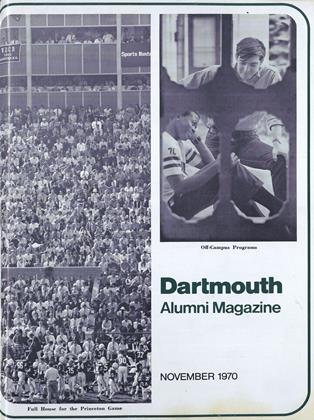LEVITY AND GRAVITY
On a hot afternoon one autumn day In England long ago and far away There lounged beneath a bough one Isaac Newton; It was so warm he wished he had no suit on.
Birds twittered, and inebriate buzzing bees Sampled ripe fruit in burdened apple trees.
Newton, immersed in revery or thought, Reading a book, perhaps of verse, did nought Until a sphere, in size not very great, Broke from its twig and smote him on the pate.
A brilliant theory flashed across his mind:
"What Earth sends up it brings back down, I find.
In all this glorious dell of fragrant dapple, I learn a lesson from an Earth-bound apple.
Whatever goes aloft must soon come down.
After I sponge this compote from my crown, And while the setting sun provides some light, I shall the Law of Gravity indite, Simple as alphabet or Q.E.D., A—apple, B for bees, for buzzing, Z, Not Zuyder Zee, but cider sea, far better.
Law, be immortalized by thy begetter!"
Sir Isaac Newton lives, although long dead, Who went from A, or Ah! to Z, or Zed.
NIGHTS OF THE GARTER
The night of April 23 In thirteen hundred forty nine Countess Joan of Salisbury, When dancing with her monarch fine, Was by affection smitten sore, And from her pretty thigh let fall Her garter blue down on the floor To the astonishment of all.
Saving the minx from ridicule, Gallant King Edward, nothing loth To quench the laughs of knave and fool, Retrieved it then, and sternly quoth:
"Honi soit qui mal y pense."
Quelle amusante circonstance!
No common garter snake was he, Mere seduction not his object; Or boa constrictor up a tree.
Of his lovely lissom subject Chevalier and boy-constrictor, Did he later kiss and squeeze her?
Was the King or Joan the victor?
Did they cleave in amorous seizure? By the girl he bravely guarded At the dance recalled above One hopes he later was rewarded With many garter-nights of love.
"Honi soit qui mal y pense."
Quelle charmante circonstance!
 View Full Issue
View Full Issue
More From This Issue
-
 Feature
FeatureWhat Is a Conservative?
November 1970 By NORMAN LAZARE '40 -
 Feature
FeatureOpportunities for the Coming Year
November 1970 -
 Feature
FeatureThe Boom in Off-Campus Study
November 1970 By JAMES L. FARLEY '42 -
 Feature
FeatureALUMNI ALBUM-30
November 1970 By —BARBARA BLOUGH -
 Article
ArticleBig Green Teams
November 1970 -
 Article
ArticleThe ROTC Decision: An Explanation
November 1970 By ARTHUR LUEHRMANN
KIMBALL FLACCUS '33
-
 Article
ArticleUTOPIAN SCHOLARSHIP
April 1933 By Kimball Flaccus '33 -
 Article
ArticleMUSIC REMAINS
May 1934 By Kimball Flaccus '33 -
 Article
ArticleWhiteface, New Hampshire
December 1942 By KIMBALL FLACCUS '33 -
 Article
ArticleBlind Man's Buff
August 1946 By Kimball Flaccus '33 -
 Article
ArticleThree Aleutian Love Poems
November 1946 By KIMBALL FLACCUS '33 -
 Feature
FeatureGOTHAM GAMBIT:
December 1956 By KIMBALL FLACCUS '33







